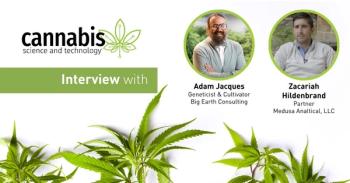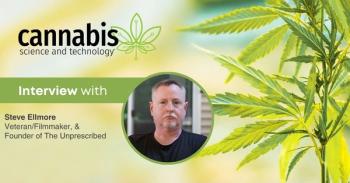
Cannabis Testing Guidelines with Allison Baker
In this interview, Allison Baker, Coordinator of Standards and Official Methods at AOAC INTERNATIONAL, discusses standardization and uniform guidelines in cannabis testing.
Allison Baker works as a Coordinator of Standards and Official Methods, supporting standards development activities at AOAC INTERNATIONAL. She is the manager for the Cannabis Analytical Science Program (CASP), the Analytical International Methods and Standards (AIMS) Program, and coordinates additional working group initiatives. Prior to joining AOAC, Allison worked at the Frederick National Laboratory for Cancer Research as a research associate for the Center for Molecular Microscopy, and at Leidos, serving as a scientific manager for the Department of Defense’s Congressionally Directed Medical Research Programs. Allison graduated from Mount Saint Mary’s University in 2017 with a B.S. in health sciences and again in 2019 with a M.Sc. in biotechnology and business management.
Allison Baker co-presented on a panel titled "Standards and Accreditation–The Way We Move Forward?" in the Analytical Track at the Cannabis Science Conference Fall 2023 on September 21.
Read a transcript of the interview below:
What is going well in regard to laboratories and testing standards?
Allison Baker: There's definitely a lot that's going well for labs and testing standards. One thing that I would like to highlight is the involvement in recognition of standards bodies in the testing landscape. There are several organizations like AOAC that have been spending the last several years producing methods, guidelines, and educational programs to move this industry forward, and I think the labs are really taking that into account. I can't emphasize enough how important it is to be involved in all of these efforts. We need knowledge in the market and that knowledge is going to come from experts in the field who are willing to learn and educate others.
What could be improved to benefit the industry?
Baker: So, there are lots of things that are going really well, but of course improvements can always be made. I think one thing that I would highlight is the lack of standardization when it comes to terminology and homogenization and sampling techniques. So, for example, THC results can be derived from a dry weight basis, but cultivators have different ways of sampling the flower, they have different ways of drying, and different ways of curing it. So all of those different processes can differ results. So I think that having more standardization when it comes to that part of the industry is really important, and I know AOAC and other organizations are working on providing those guidelines.
Do you feel there should be uniform guidelines on cannabis testing?
Baker: So yes, absolutely I think there should be uniform guidelines for testing. I think that that would solve most of the issues that we're seeing in the industry today when it comes to potency inflation, inaccurate lab results, and lab shopping–things like that. So of course we want standardization, we want uniform guidelines, but I think before we can do that, we really need to focus on standardizing other parts of the pipeline. And that goes back to standardizing terminology, standardizing homogenization, and sampling techniques. I also think that we need to see more collaboration among labs so that we get that sharing of expertise and experience, so that the labs are not afraid to share that information with one another. It is definitely a competitive market, but until we're sharing those resources, we're not going to get anywhere with uniform guidelines. I also think that there is a need to collaborate with testing labs, state regulators, and standards organizations so that we're putting the science first. We never want to see regulations leading the science. I think that's also very important. And AOAC has been working with state regulators to educate them about the standards when it comes to cannabis. So that's definitely the first step in moving towards that final goal.
Newsletter
Unlock the latest breakthroughs in cannabis science—subscribe now to get expert insights, research, and industry updates delivered to your inbox.



